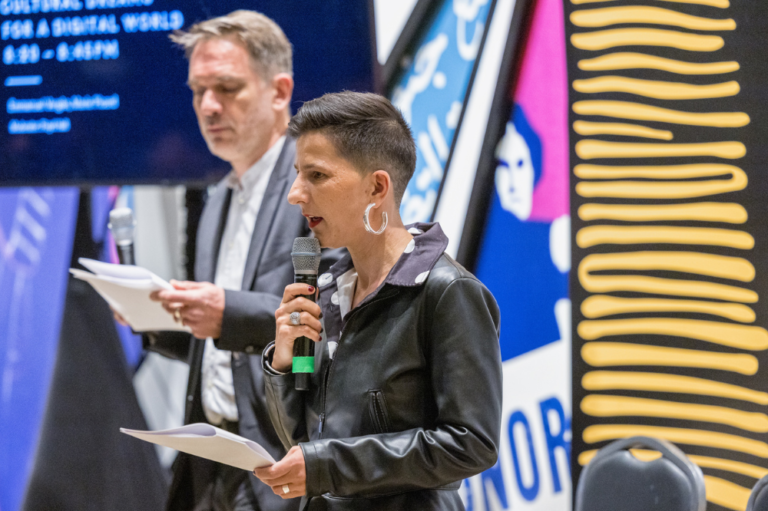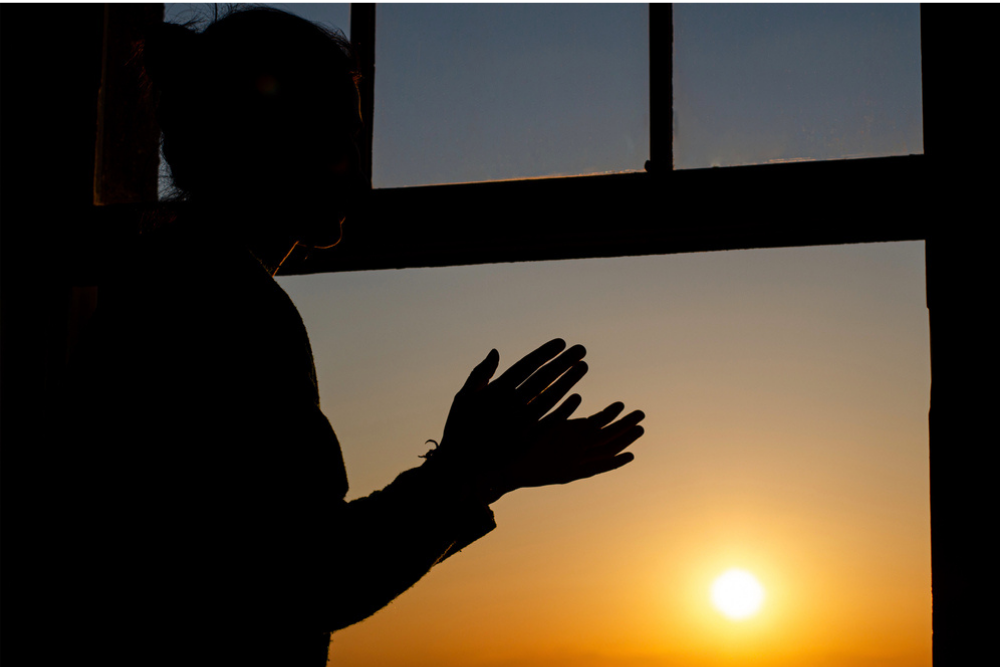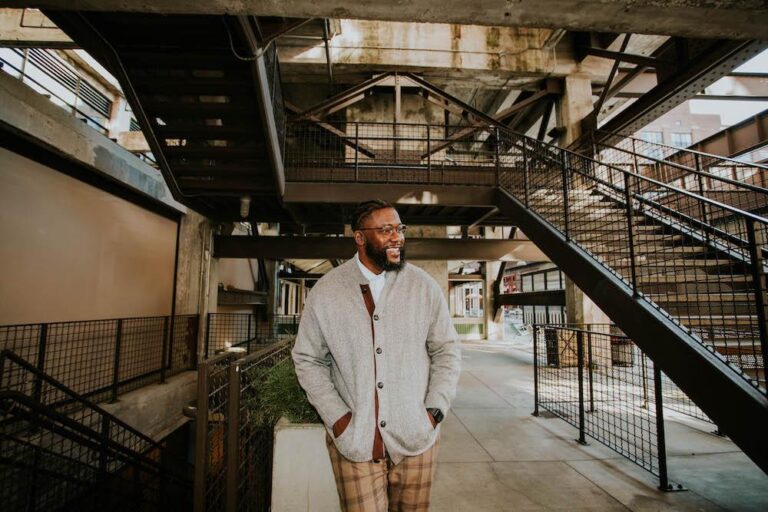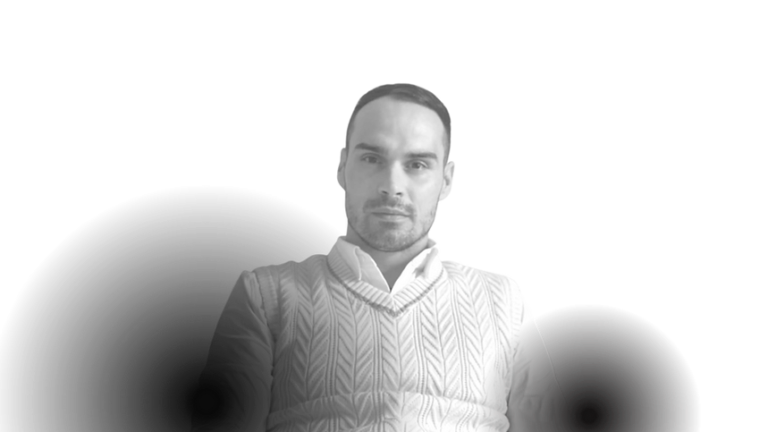
Where Are We Going? Turning Collective Tragedy Into Opportunity

By Nathalie Etoké
Dwelling on the pandemic and its aftermath on the population, Nathalie Etoké answers the question posed by the Night of Ideas, “Where are we going?”, by pointing out how this period has exposed the social disparities. Hidden behind our masks, our attention is focused on those who are usually left behind by society.
We are entering the third year of a pandemic that is till going strong. Many hoped it would prove to be short-lived, but it has dragged on. It gave us a summer break. Time went by but the pandemic did not. Vaccination is divisive. Reason sometimes gives way to hysterical conspiracy theories. Delta. Omicron. The virus mutates. Are the surprises now over? Doctors argue on 24-hour news channels. Some imagine the nightmare now ending. Others want to go back to yesterday’s world. Many wonder about tomorrow’s. Governing means foreseeing, yet the unpredictable nature of the virus has unsettled leaders, who have had to think on their feet.
I still recall the first wave that dumbfounded humanity. Death and fear of death paralyzed life. Woe was no longer just a particularity of Haiti or sub-Saharan Africa—places the West reports from to remind itself of its comfort. Disaster and distress took root in countries where people assumed they had the answer to everything, where they played down death and lived as if happiness were their due and adversity was for other people. The war in Ukraine is once again proving the West wrong. Our gilded borders did not keep the virus away, and neither do they now seem like walls wars cannot shatter. Our leaders were helpless in the face of an unforeseen virus. They foisted house arrest on dazed citizens. A weekday felt like an age. Cities were as quiet as the countryside. Only wails of ambulance sirens disturbed the stupor.
For several months, the atmosphere was apocalyptic. In the evenings, city dwellers would lean out from their windows and balconies to express gratitude to health workers. Rounds of applause would break the deafening silence of closed indoor spaces. Did they reveal a desire to forge bonds, to belong to a kindly community at a time when we were isolated behind our walls, sometimes falling prey to a grip of anxiety, depression, isolation or violence? Lockdown helped some people flourish and change their lives, or welcome births to mock death. But for others, it sparked rifts and separations. The bustle of everyday life, which had given a false sense of fulfillment, evaporated. Existence in lockdown was marked by life’s fragility, an acute awareness of death and danger, and a search for—and loss of—meaning in light of an uncertain future. It became impossible to ignore suffering. Covid-19 was the most-shared thing in the world.
Where are we going? The question points to a shared fate. Covid-19 has taught us how to be humble in the face of uncertainty. It has taught us a duty of solidarity and collective responsibility. No country will get by alone. The virus crosses borders. We need to turn this collective tragedy into an opportunity. We need to look into the possibilities of a world where sharing replaces exploitation—a world in which neighbors and foreigners form an extension of our humanity and no longer immediately arouse fear or a desire for conflict.
When the invisible gain visibility
Two years ago, in New York and in the Greater Paris area, impatient crowds underwent long waits outside supermarkets. In so-called developed countries, as long as you could afford to do so, a few taps on your phone or clicks on your computer would bring groceries, warm meals, alcohol or books right to your door. With remote working and Zoom meetings, some people discovered a new way to work from home. But others had no choice—they had to put themselves in danger. They often came from minority groups. Cashiers, garbage collectors, delivery drivers, bus drivers, subway drivers, and caregivers for elderly people were given unusual prominence.
The pandemic revealed that the Other could be a key worker whose thankless work made the lives of those in lockdown easier, despite a populist, xenophobic line that sees Them as a problem to resolve. This person would get up early and go to bed late, while you were safely confined to your home. Their children would suffer from academic disengagement and struggle to eat properly as the canteen’s daily meals disappeared. Distance learning did not take into account racial and socio-economic disparities. Not everyone had a computer, internet access or parents who could stand in for teachers.
We cannot settle for just applauding or thanking these anonymous laborers. Exposure to the virus cost some of them their lives. Are we going to carry on living in a society that accepts systems of exploitation and economic marginalization? How can we ignore the extravagance and disdain of the world’s second-richest man who, upon his return from a private getaway to space during the pandemic, thanked his company’s employees and consumers? While we are delighted to get parcels within ever shorter delivery times, we are taking part, whether we like it or not, in a capitalist chain of exploitation that does not care about people’s horrible working conditions or the ecological effects of excessive consumerism.
In the former world, a veil of indifference and invisibility hid low-wage earners from our sight. But because we expected and depended on their services during lockdown, we can no longer look away. We can no longer pretend we do not see what is going on under our nose. The pandemic opened our eyes. It held a magnifying glass up to social and economic inequalities that already existed before the health crisis. Claiming that immigrants were lazy—that they were happy to just pocket welfare benefits—showed insincerity or a denial of reality. We live in an indifferent society that overwhelms the poor while adapting to their suffering.
Will today’s crisis compel us to imagine a more egalitarian society in which the well-being of some people is not gained at the expense of others? Interrelations—“I am because we are”—entail reciprocity between an individual and the society they belong to. Taking care of oneself means taking care of others as well, and vice versa. It is about creating a shared world where interdependence becomes possible through fair relations.
Let’s drop the act
The habits we adopted in 2020 remain. Until recently, vulnerability was hidden behind a mask of arrogance, exaggerated cheerfulness, or indifference. Now it is on our faces, half-covered in dread. Gazes meet. Our eyes show smiles and anxiety.
Bodily warmth was once so reassuring. Now it is banned. We must avoid hugs and kisses, apply safety precautions, and refrain from bodily contact. Social estrangement is promoted as a form of protection. But nothing can replace cuddles and caresses. Are we heading towards a world where touching others becomes deadly? Are humans who can no longer touch each other actually still human? Where are we going? What kind of humanity are we creating, becoming, accepting? In tomorrow’s world, we will have to learn how to kiss, hug and touch each other again, without fear of dying as a result of doing so.
When racism shakes us out of our daze
Racism and police brutality broke the daze the pandemic had put us in. Even in a global health crisis, some demons proved strong and more alive than ever. The George Floyd murder video went viral in cross-border cyberspace. The tragedy sparked a worldwide chain of anti-racist solidarity. Urban revolts flared in several US cities, an unprecedented protest took place in Paris, statues were toppled in the UK, blacks in the Middle East spoke up, and Australia’s Aboriginals lambasted deep-rooted institutional racism.
To some, racism is a pandemic that has been ravaging the US for 400 years. A worldwide anti-racist conscience found a voice on streets and social media. Where are we going? One part of society seems more disposed to recognize and decry racism; another sees today’s anti-racism as anti-white bigotry. We can delight in this desire for social justice, but what can we say about its negative counterpart–an increase in populism, racism, and xenophobia? What can we say about this tendency to reduce humanity to race, to discard that inner self that helps us relate to the Other? Is this a zero-sum game?
We are going through a dark night, the end of which is still far away. The pandemic is an omnipresent tragedy that floats in the air we breathe. Life is in mourning. We mourn the death of others, of loved ones, of the masses. Fear of death has taken hold. For some time now, it has been impossible to live as if death were not real. Yet we are alive. Is the worst behind us or yet to come? It does not matter. We have to live. We have to trust in life. Nostalgia weeps over the former world. It gives birth to a stillborn future.
Where are we going? Towards a fairer world we have a duty to create. Everyone is concerned. No-one will get by without others. We shall live together, or die together.
Nathalie Etoké is an Associate Professor of Francophone and Africana Studies at the Graduate Center, CUNY. She specializes in literature and cinema of Francophone sub-Saharan Africa, black French studies, queer studies in Africa and the Caribbean, and Africana existential thought. Her research examines the ongoing struggles for social justice and freedom for people of African descent around the world, accounting for the consequences of racial slavery, colonialism, and sexual violence in the longue durée of imperialism since 1492.


